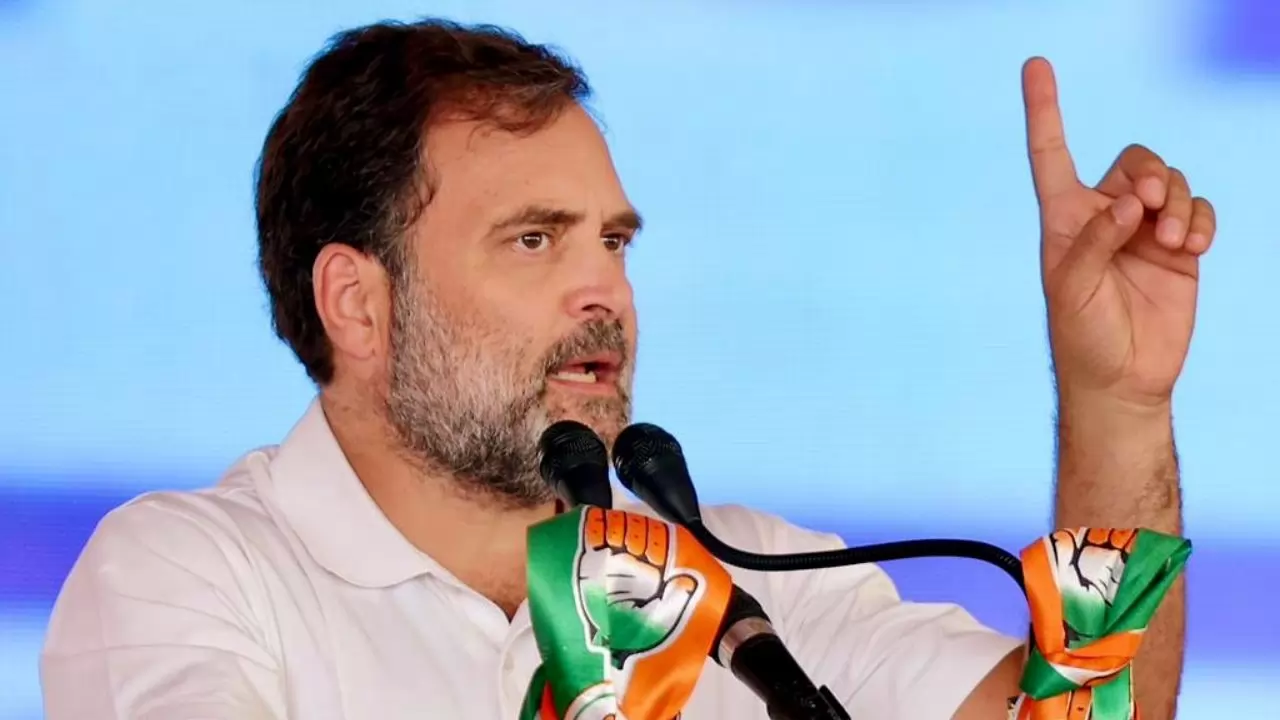
ANI
New Delhi: Congress leader Rahul Gandhi has responded affirmatively to an invitation from Justice Lokur, Shah, and journalist N Ram for a debate with Prime Minister Narendra Modi. Asserting his readiness for a discourse on any issue, Gandhi expressed doubts about Modi's willingness to engage, stating, "I know the Prime Minister. He will not debate with me." At a Constitution Conference in Lucknow, Gandhi underscored his preparedness for debate, offering the participation of Congress President Kharge if Modi declines.
Presenting his case at the conference, Gandhi criticized the Modi government, labeling it as anti-reservation. He highlighted concerns regarding the closure of avenues for backward, Dalit, tribal, and minority communities, attributing this trend to privatization initiatives that undermine constitutional provisions for reservation.
In a scathing critique, Gandhi likened Modi to a monarch, asserting, "Modi ji is not the Prime Minister, he is the king." Accusing Modi of subservience to corporate interests, Gandhi alleged that influential financiers dictate government policy, targeting marginalized communities and jeopardizing constitutional safeguards such as reservation.
Reflecting on India's socio-political evolution, Gandhi emphasized the transformative role of the Constitution, pioneered by Dr. B.R. Ambedkar and Mahatma Gandhi. While acknowledging the Constitution's empowering impact, Gandhi lamented its partial realization, citing systemic inequalities perpetuated in media, judiciary, and governance.
Highlighting disparities in representation and opportunity, Gandhi called for a caste census to unveil societal realities and advocated for inclusive policies to empower marginalized groups. He cautioned against dilution of constitutional principles through politicized investigations, institutional bias, and unilateral policy decisions.
Asserting the indispensability of grassroots participation in nation-building, Gandhi challenged Modi's vision of a "superpower India," emphasizing the pivotal role of the majority in shaping national progress. He critiqued Modi's policies, citing demonetization and unilateral military decisions as assaults on democratic norms and constitutional integrity.
As the political discourse intensifies, Gandhi's stance resonates with calls for social justice, equitable representation, and accountable governance. His critique underscores the imperative of safeguarding constitutional values amidst shifting political paradigms, urging citizens to scrutinize power dynamics and uphold democratic principles.





Copyright © 2025 Top Indian News
